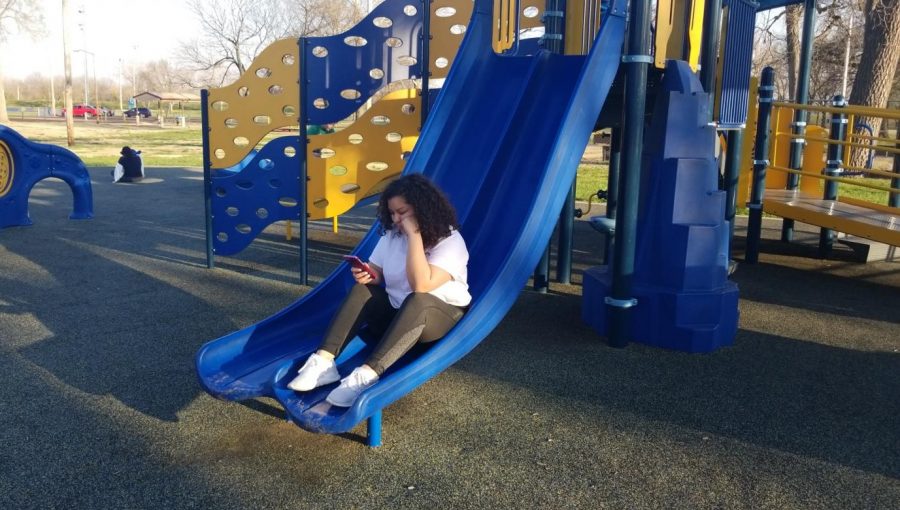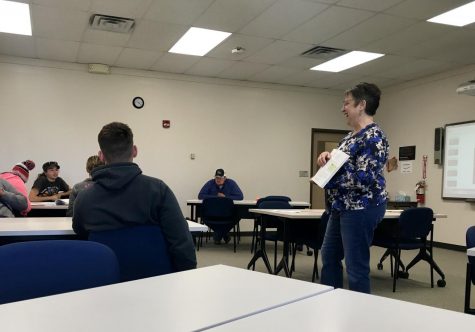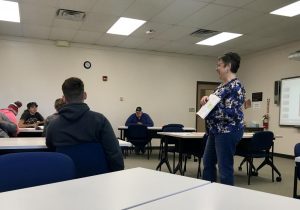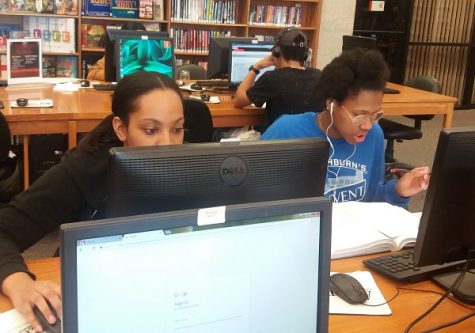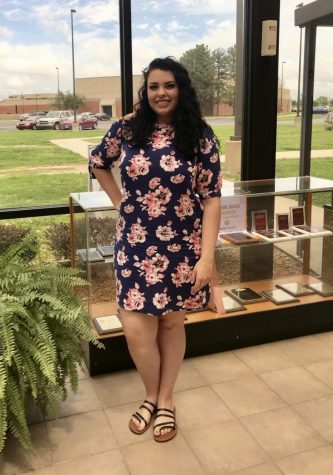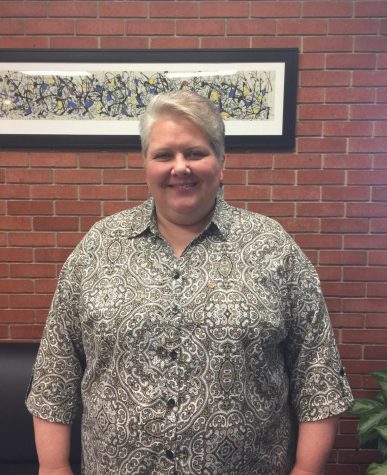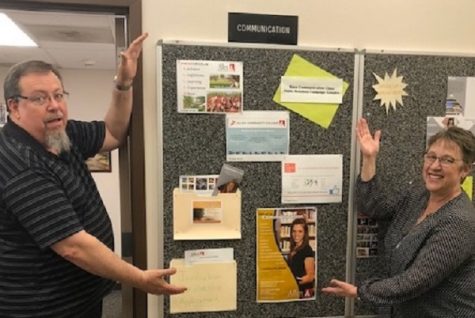Editorial: Technology Killed Community
I’M SO BORED… LOL. Allen student Cristal Macias helps illustrate the lack of community appreciation in young people at Riverside Park, in Iola, KS.
April 16, 2018
When was the last time you cracked open a book? Went for a jog while listening to your mp3 player? What about popping in Jesse McCartney’s Beautiful Soul CD and scream-singing every word to “She’s No You”? Millennials (born late 1980s to early 2000s) are the first generation to grow up with the internet, cell phones, and television; and yes, are more connected because of it. However, the technologically advanced climate we’ve matured in has limited our experiences in society.
When the World Wide Web launched in 1994 at a conference in Geneva, Switzerland, the way we communicate would be changed forever. Two years later, in 1996, Hotmail became the first email account hosted online, followed by the search engine and internet empire, Google. By the time us millennials were starting grade school, people across the world had access to Wikipedia, iTunes, Skype, LinkedIn, and Facebook. According to Facebook Newsroom, 1.4 billion people were active daily as of December 2017. There are few Americans that lack working knowledge of these resources.
At our roots, Americans are materialists. However, it seems our lives now revolve around one specific possession that houses all the others: our smartphone. It is virtually impossible to exist without one these days, especially since they are the primary way schools, employers, and friends share information. This lifestyle staple has taken the place of our shopping malls, libraries, album collections, radios, address books, maps, and… grocery stores? Yes, apparently now you can order groceries online and have them shipped to your door every week.
Time Magazine reported that by 2022, 1 in 4 malls in the U.S. will go out of business, thanks in part to the online shopping craze. Harvard business professor Leonard Schlesinger told Time that malls were “built for patterns of social interaction that increasingly don’t exist.” Shopping centers that used to be a hub for social traffic and commerce have now become desolate relics, tributes to what youth meant in an earlier time.
Amazon Kindles and tablets have given people the opportunity to read online, limiting libraries’ value. Some colleges even offer digital copies of textbooks for students. Now, new music can be downloaded right to your device for instant play. Pandora, Spotify, and YouTube have stolen the need to listen to live radio. It used to be that the only way that artists could promote their albums was by playing low-cost or no-cost shows for the masses. Even the appreciation for live music has decreased in recent years, largely in part because of the unwillingness of performers and as a result, higher ticket prices.
So, how is it connected? What does it mean, and why does it matter? I can get everything I want by clicking a few buttons on my phone or computer, without ever leaving my room. What’s wrong with that?
THE FUNDAMENTAL flaw that technology creates is the lack of human connection and experience. Millennials aren’t shopping together in malls anymore. Our children will not remember the smell of Mrs. Powell’s cinnamon rolls wafting from the food court while they scour the isles of Hot Topic, meeting new friends or testing the waters with a crush. They won’t remember what it’s like to carry a library card, or to grab coffee and go study with peers at a crowded table there. Reading, even silently with others is still with others.
Streamed playlists and aux cords in the car leave no room for the “friendly radio man” to tell you about the weather, or Sally’s chili feed at the church next Sunday. We don’t have to stop along the road to ask others for directions, we just say “Okay, Google. Take me to Iola, Kansas” and an electronic voice becomes our travel companion.
I will admit there is some truth to the argument that social media connects us, but reading a post or looking at a picture only gives you information about what another person is doing. We are a generation of know-ers and doers. No 140 character tweet can truly convey how another person is feeling (not even a black-screen Snapchat story or your mom’s neighbor’s Facebook rant). Dear technology, you have not raised a generation of feelers.
If we do not focus on communicating and fully experiencing life, away from the screen, our relationships, interpersonal skills, and overall quality of life will suffer.
Long story short:
We are one of the most connected, worldly generations in history and yet we have never been more alone.

